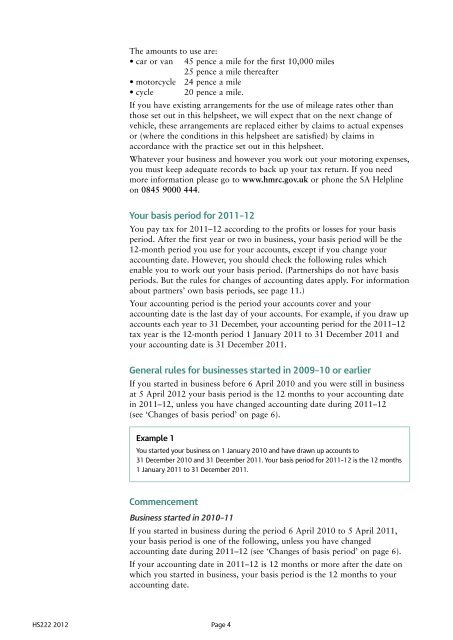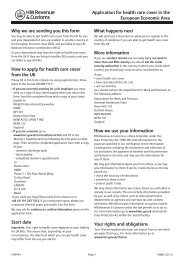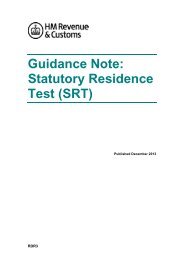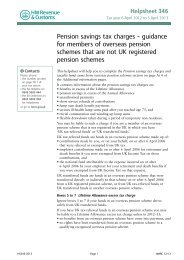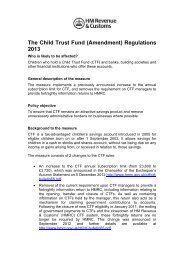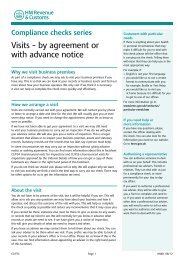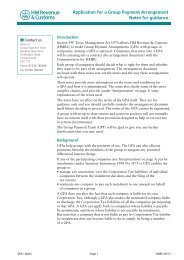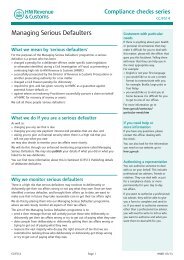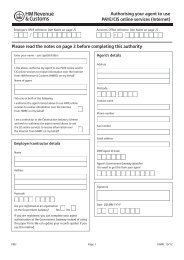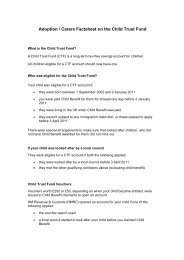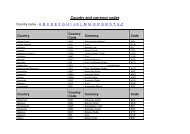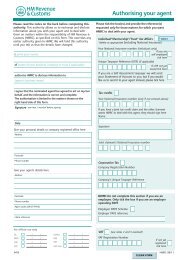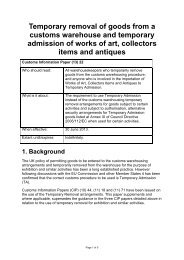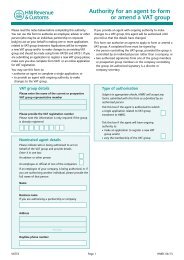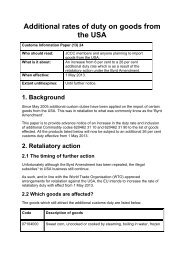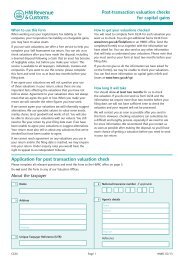Helpsheet 222
Helpsheet 222
Helpsheet 222
You also want an ePaper? Increase the reach of your titles
YUMPU automatically turns print PDFs into web optimized ePapers that Google loves.
The amounts to use are:<br />
• car or van 45 pence a mile for the first 10,000 miles<br />
25 pence a mile thereafter<br />
• motorcycle 24 pence a mile<br />
• cycle 20 pence a mile.<br />
If you have existing arrangements for the use of mileage rates other than<br />
those set out in this helpsheet, we will expect that on the next change of<br />
vehicle, these arrangements are replaced either by claims to actual expenses<br />
or (where the conditions in this helpsheet are satisfied) by claims in<br />
accordance with the practice set out in this helpsheet.<br />
Whatever your business and however you work out your motoring expenses,<br />
you must keep adequate records to back up your tax return. If you need<br />
more information please go to www.hmrc.gov.uk or phone the SA Helpline<br />
on 0845 9000 444.<br />
Your basis period for 2011–12<br />
You pay tax for 2011–12 according to the profits or losses for your basis<br />
period. After the first year or two in business, your basis period will be the<br />
12-month period you use for your accounts, except if you change your<br />
accounting date. However, you should check the following rules which<br />
enable you to work out your basis period. (Partnerships do not have basis<br />
periods. But the rules for changes of accounting dates apply. For information<br />
about partners’ own basis periods, see page 11.)<br />
Your accounting period is the period your accounts cover and your<br />
accounting date is the last day of your accounts. For example, if you draw up<br />
accounts each year to 31 December, your accounting period for the 2011–12<br />
tax year is the 12-month period 1 January 2011 to 31 December 2011 and<br />
your accounting date is 31 December 2011.<br />
General rules for businesses started in 2009–10 or earlier<br />
If you started in business before 6 April 2010 and you were still in business<br />
at 5 April 2012 your basis period is the 12 months to your accounting date<br />
in 2011–12, unless you have changed accounting date during 2011–12<br />
(see ‘Changes of basis period’ on page 6).<br />
Example 1<br />
Commencement<br />
Business started in 2010–11<br />
If you started in business during the period 6 April 2010 to 5 April 2011,<br />
your basis period is one of the following, unless you have changed<br />
accounting date during 2011–12 (see ‘Changes of basis period’ on page 6).<br />
If your accounting date in 2011–12 is 12 months or more after the date on<br />
which you started in business, your basis period is the 12 months to your<br />
accounting date.<br />
HS<strong>222</strong> 2012 Page 4<br />
You started your business on 1 January 2010 and have drawn up accounts to<br />
31 December 2010 and 31 December 2011. Your basis period for 2011–12 is the 12 months<br />
1 January 2011 to 31 December 2011.


